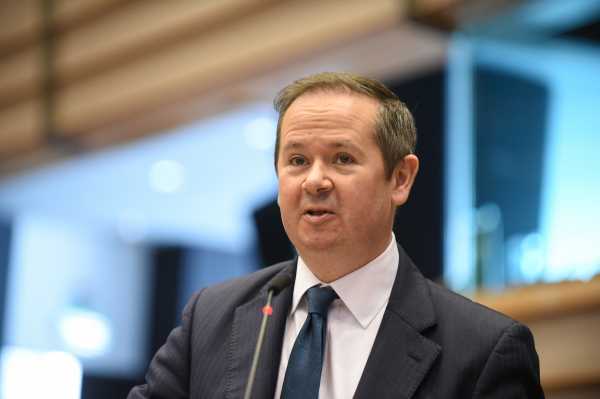Bringing local and regional politicians into the Brexit debate

The EU’s political assembly of local and regional authorities has been providing input and support to the EU’s Chief negotiator Michel Barnier on the impact of the UK’s withdrawal from the EU. In addition to the fact-finding missions conducted by the political leadership of the European Committee of the Regions through its Conference of President’s consisting of the Presidents of the political groups and the President and First Vice-President of the CoR, EU’s local and regional politicians have been holding public debates.
The consequences of the United Kingdom’s withdrawal from the EU for local and regional authorities were debated by local and regional politicians during the 132nd and 133rd plenary sessions of the European Committee of the Regions that took place in December and February. The main speaker for local and regional politicians in December was Michel Barnier, the European Chief Negotiator for the UK Exiting the EU. ECR Group Members from the Netherlands, Slovakia and the UK (England and Northern Ireland), were among the most active in expressing their expectations and concerns.
The withdrawal of the United Kingdom from the European Union has stirred up many reactions since the 2016 referendum, in which the majority of voters decided that the UK should leave the EU. After the referendum and the subsequent triggering of the process for the UK departure from the EU, local and regional politicians started engaging in a fact-finding activities looking at the local and regional impact of the UK’s withdrawal. The European Committee of the Regions’ Conference of President’s met representatives of English, Northern Irish, Scottish and Welsh local government and devolved administrations preparing a report summarising their findings. The impact of the UK’s withdrawal was also analysed in the Commission meetings of the European Committee of the Regions, where specific policy angles were explored in depth.
During the recent plenary session of the European Committee of the Regions, public debates were held on the UK’s withdrawal and its impact on local and regional authorities. The terms of the UK’s withdrawal, as well as their future relationship with the EU, were the main points of their exchange of views with Mr Barnier.
ECR President Rob Jonkman and three other ECR Members stressed the need for maintaining good relations between local and regional politicians from both sides of the Channel post-Brexit.
“Global trends that impact our localities such as climate change and digital economy often require local action. We do not need to legislate together to be able to continue sharing best-practices and continue cooperating on areas where we have common interests”, said Rob Jonkman (Alderman in Opsterland in the Netherlands).
As the CoR is investigating the best channels for continuing cooperation on these topics post-Brexit, Cllr David Simmonds (Deputy Leader of London Borough of Hillingdon and Deputy Chairman of the Local Government Association) underlined that “the final withdrawal agreement between the EU and the UK needs to specifically provide for forms of structured cooperation between local and regional authorities and devolved administrations”.
Other ECR Members referred to developments in their home countries during the Brexit discussion.
“As someone who has lived through the unrest if Northern Ireland, I understand the sensitivities on both sides of the argument in our island of Ireland. The EU needs to understand the dangers of not respecting the fact that Northern Ireland is part of the UK and creating a border between us and the rest of the UK. Northern Ireland cannot be trapped in a back-stop that creates a regulatory barrier between us and the rest of the UK from which we can only be released if the EU unilaterally agrees. We would be virtual prisoners in this system”, said ECR Member from UK, Northern Ireland Arnold Hatch (Alderman on Armagh City, Banbridge, Craigavon Borough Council).
ECR Member Juraj Droba, Chairman of Bratislava Self-Governing Region, who also took the floor, noted his regret that the UK was leaving the EU and raised geostrategic concerns for the future of Europe such as Russian interference in EU countries. He called on local and regional politicians in Europe “to fight against negative political trends and help bring European countries closer together again”.
Brexit was also one of the highlights of the 133rd CoR plenary session, which took place on 6 and 7 February 2019. During the session Juraj Droba expressed concern about damage to Slovakia’s automotive industry, noting that Slovakia now produces more vehicles per capita than any country in Europe.
The EU’s assembly for local and regional politicians also heard from Cllr Kevin Bentley, the chairman of the Brexit task-force of the Local Government Association for England and Wales. He offered the “reassurance” that local authorities are working “very hard” and “in a calm manner” with the UK government about the impact of Brexit “on real people”. The “vast majority” of EU law in the UK is enacted by local and regional authorities, he noted.

